第十四课 - Conditional Statements
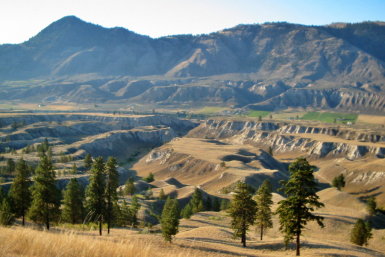
In this lesson you'll learn how to use conditional sentences in English. You'll also learn how to use verb phrases to be supposed to and used to.
In the vocabulary section, you'll learn the English words for objects that are found in nature.
This lesson starts with a short conversation between two people who are discussing their plans for the weekend.
广告
谈话
English
Mark and Alice see each other as they are leaving from work on Friday. They discuss their plans for the weekend.
Mark: What are you up to this weekend?
Alice: I'm going to the beach on Saturday with some friends, then we're going for dinner, and after that we're going to a concert. I don't have any plans for Sunday yet. What are you doing this weekend?
Mark: I'm going to go hiking to Kennedy Lake in the mountains.
Alice: That's a long hike, but it's worth it. It's a beautiful lake. What are you doing on Sunday? Do you want to go for a coffee?
Mark: Sure. How about we meet at Wick's Café at 11.
Alice: Sounds good. I'll see you there.
Natural Objects
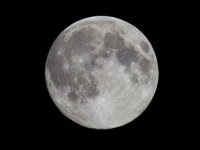
 moon
moon
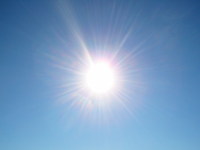
 sun
sun
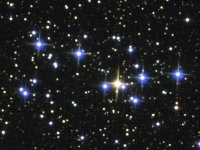
 stars
stars
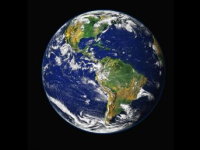
 Earth
Earth

 mountain
mountain

 cliff
cliff

 hill
hill
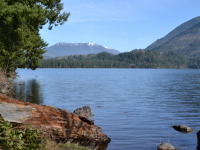
 lake
lake
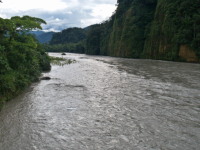
 river
river
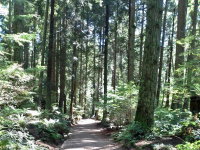
 forest
forest

 desert
desert
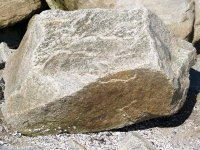
 rock
rock
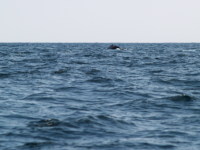
 ocean
ocean

 waterfall
waterfall
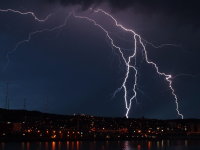
 lightning
lightning

 cloud
cloud
语法
Conditional Sentences
A conditional sentence contains a statement that will be true if a certain condition or conditions happen. Conditional sentences are often formed using a group of verbs in English called modal verbs (will, shall, can, may, and must), usually along with the conjuction if. Conditional statements can be simple present, simple past, or past perfect.
Present Conditional
The simple present conditional is used to talk about things that happen when cetain conditions are met. The present tense of verbs or the present tense of a modal verb plus infinitive are used in these sentences.
Examples
| If I open the door, the cat runs outside. | |
| If I open the door, the cat will run outside. | |
| If I open the door, the cat can run outside. | |
| If I open the door, the cat may run outside. | |
| The cat will run outside if I open the door. | |
| The cat will run outside if I open the door and say his name. | |
| The phone will break if I drop it or throw it. |
Simple Past Conditional
The simple past conditional is used to refer to an imaginary or unreal event and its probable result. For the simple past conditional, would, which is the past tense of will, is used.
Examples
| I would agree with you if you were right. | |
| The cat would go outside if I opened the door. | |
| I would read the book if I had more time. | |
| I would read the book if it was interesting and I had more time. | |
| I would read the book if it was interesting or I had more time. | |
| Snow would be great if it wasn't cold. |
Conditional Perfect
The past conditional perfect is used to indicate that a different action in the past would cause a different outcome than what actually happened. The conditional perfect is formed using would have with the past participle of the verb.
Examples
| We would have gone if we had enough money. | |
| The cat would have gone outside if I had opened the door. | |
| I would have walked to the store if it wasn't raining. | |
| Would they have done the dishes if I had asked them? | |
| I would not have offered if I didn't mean it. | |
| The snow would not have melted if it was a bit colder. |
To Be Supposed To
The verb phrase to be supposed to means that an action is expected or believed to be done by somebody.
Examples
| Mary is supposed to study for her exam. | |
| We are supposed to paint the house today. | |
| You are not supposed to tell anyone. | |
| Am I supposed to do it? | |
| You were supposed to do it. | |
| The teacher was supposed to explain it to us. |
Used To
Used to has several different meanings. This section covers each of its uses.
1) To be used to means to be accustomed to, or to be familiar with. For example:
| I am used to the warm weather. | 我习惯了温暖的天气。 |
| I’m used to leaving work late. | 我习惯工作到很晚。 |
| He is used to the noise of the traffic. | 他习惯了交通噪音。 |
2) When used to follows a noun or pronoun it means an action was repeated in the past, but does not currently happen. For example:
| I used to drive to work, but now I walk to work. | 我以前开车上班,但现在我走路去上班。 |
| I used to put two teaspoons of sugar in my coffee, but now I don’t put any sugar in. | 我习惯把糖两茶匙在我的咖啡,但是现在我不把任何糖。 |
| They used to visit almost every weekend, but now that they’ve moved away, we rarely ever see them. | 他们用几乎每个周末参观,但现在他们已经搬走了,我们很少看到过他们。 |
3) Used to can also be the past tense of the verb phrase use to. For example:
| What did you use to fix it? I used a hammer to fix it. | 什么你用它来解决这个问题?我用锤子来解决它。 |
| What do they use the apples for? They use them to make apple pie. | 他们是怎么使用的苹果呢?他们用他们做苹果派。 |
| We used it to store our extra clothes. | 我们用它来存储多余的衣服。 |
Flashcards
使用在线闪卡帮助您学习本课程中的词汇表。
测验
这是一个简短的在线考试,可帮助您学习本课程中包含的英语词汇并测试您的进度。

